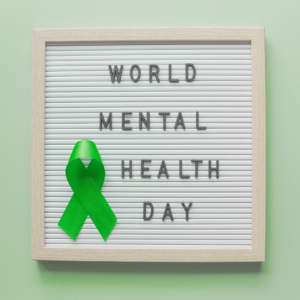Diving deep into Male Mental Health
With all the buzz about mental health in recent years, we often find that men are sometimes left out of the conversation. What many do not realise is that for men, there is often a vicious cycle that they find very hard to break out of. A mix of expectations and inability to express needs make this almost a systemic issue.
Unheeded emotional problems can affect a man’s ability to fully function in society and within his family, causing issues in the long term.
We spoke to Joe, the founder and director of Ark of Hope,and an associate at Our Journey Counselling and Wellness, to find out more about his efforts, observations and advice on how men can better manage their mental well-being for an overall better quality of life.
Being part of the social sector for over 17 years, Joe has been involved in youth work, family and communities, providing services for individuals and running youth programmes.
At Ark of Hope, he aims to help youths navigate life, fine tune and hone skills to offer them fresh perspectives and positive mindsets to better manage challenges that come their way.
What are your impressions of male mental health and how it is managed in Singapore?
Speaking from the perspective of maybe younger males and extrapolating that to their fathers, we notice that in Singapore, there are strong stereotypes that entrap men in a cycle.
At a young age, they are told to be tough, to be strong and to not show emotions- this is a huge undertaking. These expectations are mostly seen or felt after they leave school and are carried forward into their young adult lives.
How do men often cope with the challenges they face in life?
Due to the expectation of men to be providers coupled with the unhealthy stereotypes that present themselves, men often find themselves trapped in a loop where they are unable to express their emotions in a healthy way. They often feel like there is a lack of a safe space for them to do so.
For some, the stress becomes too much that they turn to unhealthy coping mechanisms such as drinking or gambling which can negatively impact the whole family.
This fixation on their main role as the provider causes a divide. For some who feel like they are lacking in this area, they often turn to a second job to try to make ends meet, escaping into more work and forgoing family time. For those that do well financially, they are unable to detach themselves from work and end up neglecting the family.
The stigma, stereotypes and typical expectations of men is damaging to the individual, the family and on a macro scale, society. Abolishing the stereotypes of toxic masculinity is advantageous to society as a whole.
Why did you enter this line?
I entered because of my own personal values where I place more value on the work that I do over financial gain- I decided very early on that this was something I wanted to spend my time doing.
Does it get stressful?
Sometimes with the cases and the nature of the work, you can get mentally drained by the work, on top of dealing with the cases, administrative work can sometimes take a toll as well.
Do you personally practice self care and are aware of your own mental health?
I actually fumbled into self care when I got interested in mindfulness, 5-6 years after being in the field. At first I found it hard to understand, but soon enough I was able to implement simple things like breathing techniques, focusing on certain mantras into my everyday practice.
I think the key is to allow the body,emotions and thoughts to be congruent while integrating it with movement.
“If you look at it from a mental health perspective, the mind needs rest differently from your body- you need to have a personal routine”
Most people don’t know how to do this as they fail to recognise that there is a difference between resting and shutting off.
“If you are transferring the stress to a distraction, it is actually not helping”
Why do you think it is harder for men to practice wellness and self-care?
Social and cultural norms for sure, certain activities that men and women are associated with may contribute to men having a smaller variety of activities they can engage in- it all goes back to the stigma.
When asking men what they do to relax, it seems quite common to hear sports or gaming whereas women have more variety of activities. If a woman participates in team sports, she is seen as adventurous, but when a man goes for yoga people look at him differently.
Personally, I enjoyed cross stitching as a child, but I did not share with friends. Even at a young age, I knew that I would be judged.
How can men support men in this area of mental wellness?
Joining team sports, recreational settings and activities, interest groups can help men build networks and support systems that can allow them to express themselves more freely.
Why is it important to talk about male mental health?
Mental health struggles can get very taxing on your own. There should be no shame in seeking help or asking for support.
We hope this article reminds you that you are not alone and that there are people out there that can offer the relevant support. Should you need someone to talk to or have any questions, drop us a line and we will be more than happy to have a conversation!




